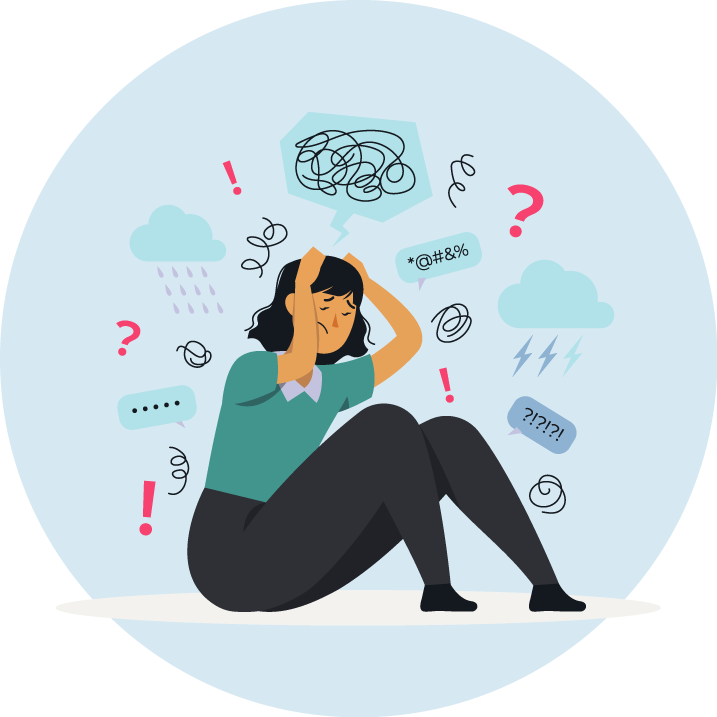Preparing for Your First Appointment with a Psychologist

Preparing for Your First Appointment with a Psychologist
July 15 2025 TalktoAngel 0 comments 313 Views
Taking the first step toward mental health support can feel daunting, but reaching out to a psychologist is a courageous and empowering decision. Whether you're seeking help for anxiety, depression, stress, relationship issues, or just want to improve your emotional well-being, your first appointment with a psychologist sets the foundation for your mental health journey. Preparing in advance can help ease nervousness and ensure you get the most out of your session.
Understanding the Role of a Psychologist
Before your first appointment, it’s helpful to understand what psychologists do. Psychologists are trained mental health professionals who use evidence-based approaches to assess, diagnose, and treat emotional and psychological difficulties. Unlike psychiatrists, psychologists typically do not prescribe medication (except in some jurisdictions). Instead, they focus on talk therapy techniques such as cognitive-behavioural therapy (CBT), psychodynamic therapy, mindfulness-based therapy, and others to help clients manage and overcome mental health challenges.
What to Expect in Your First Session
The first appointment, often called the "intake" session, is usually focused on getting to know you. The psychologist will ask a range of questions about your history, current concerns, lifestyle, relationships, and mental health symptoms. They may also discuss your goals for therapy and what you hope to achieve over time. This is a foundational session, not a treatment session, and you’re not expected to have all the answers or be perfectly articulate.
Topics that might come up include:
- Your mental and physical health history
- Family dynamics and upbringing
- Current challenges and stressors
- Relationship or work issues
- Sleeping and eating habits
- Substance use, if relevant
Your psychologist will also explain their confidentiality policy, how sessions will work moving forward, and may suggest a tentative treatment plan.
How to Prepare for Your First Appointment
Taking some time to prepare beforehand can help you feel more in control and make your first session more productive. Here are some practical tips:
- Clarify Your Reasons for Seeking Help:- Spend a few moments thinking or journaling about what brought you to therapy. Is it anxiety, stress, grief, relationship conflict, or something else? Try to identify specific issues and how they are affecting your life. You don’t need to know everything—therapy will help uncover deeper patterns—but having some clarity can help your psychologist better understand your needs.
- List Questions and Goals:- Consider what you want to achieve from therapy. Do you want to reduce anxiety? Improve communication with your partner? Process past trauma? Listing your goals—even if they’re vague—gives your psychologist a sense of direction. You can also write down any questions you have about therapy, such as how often you’ll meet, what techniques they use, or how long therapy might take.
- Bring Relevant Information:- If you’ve had previous mental health treatment, medications, or diagnoses, it’s helpful to bring those records or make a note of them. Include any current medications or significant medical issues. This background information can provide valuable context for your treatment.
- Manage Expectations:-It’s normal to want immediate results, but therapy is a process. While the first session can be relieving, it's rarely a quick fix. Be open to the idea that progress may be gradual and that therapy requires effort and consistency.
- Allow Yourself to Be Nervous:- Remember, psychologists are trained to work with people from all walks of life and will create a non-judgmental, compassionate space for you to open up.
Building Trust with Your Psychologist
One of the most important aspects of therapy is the therapeutic alliance—the trust and connection between you and your psychologist. Don’t worry if you don’t feel completely comfortable in the first session. That said, you should feel respected, heard, and safe. If, after a few sessions, you feel like your therapist isn’t the right fit, it’s okay to explore other options. A good psychologist will support your decision and may even help with a referral.
After the Session: Reflect and Plan
After your first session, reflect. How did the experience feel? Did you feel understood and supported? Did anything unexpected come up? It’s also helpful to jot down anything you forgot to mention, so you can bring it up next time. If your psychologist suggested follow-up steps—like journaling, scheduling another session, or practising a mindfulness exercise—try to follow through. Therapy works best when it’s collaborative and active.
Common Myths About Seeing a Psychologist
Many people hesitate to seek therapy due to misconceptions, such as:
Embracing the Journey
Deciding to work with a psychologist is an investment in your well-being, personal growth, and long-term happiness. The process can be challenging at times, but it can also be deeply rewarding. Many people come away from therapy with greater self-awareness, improved relationships, and healthier coping mechanisms. It all begins with that first appointment.
Where to Find the Right Support
If you’re looking to begin your mental health journey, there are excellent options for both online and offline support.
For those who prefer the flexibility and privacy of virtual counselling, TalktoAngel offers confidential and professional online therapy sessions with licensed psychologists. Whether you're dealing with anxiety, relationship problems, workplace stress, or emotional overwhelm, TalktoAngel provides convenient access to qualified mental health professionals from the comfort of your home. Taking that first step may feel intimidating, but the right support can help you move forward with strength, clarity, and resilience.
Contributed By: Dr. (Prof.) R. K. Suri, Clinical Psychologist and Life Coach, &. Ms. Mansi, Counselling Psychologist.
References
- American Psychological Association. (2019). The road to resilience. https://www.apa.org/topics/resilience
- Norcross, J. C., & Lambert, M. J. (2019). Psychotherapy relationships that work III. Psychotherapy, 56(4), 423–432. https://doi.org/10.1037/pst0000235
- Wampold, B. E., & Imel, Z. E. (2015). The great psychotherapy debate: The evidence for what makes psychotherapy work (2nd ed.). Routledge.
Leave a Comment:
Related Post
Categories
Related Quote

“If I wait for someone else to validate my existence, it will mean that I’m shortchanging myself.” - Zanele Muholi

“Treat a man as he is and he will remain as he is. Treat a man as he can and should be and he will become as he can and should be.” - Stephen R

“Remember: the time you feel lonely is the time you most need to be by yourself. Life's cruelest irony.” - Douglas Coupland

"It is okay to have depression, it is okay to have anxiety and it is okay to have an adjustment disorder. We need to improve the conversation. We all have mental health in the same way we all have physical health." - Prince Harry

“My anxiety doesn't come from thinking about the future but from wanting to control it.” - Hugh Prather
Best Therapists In India
































SHARE